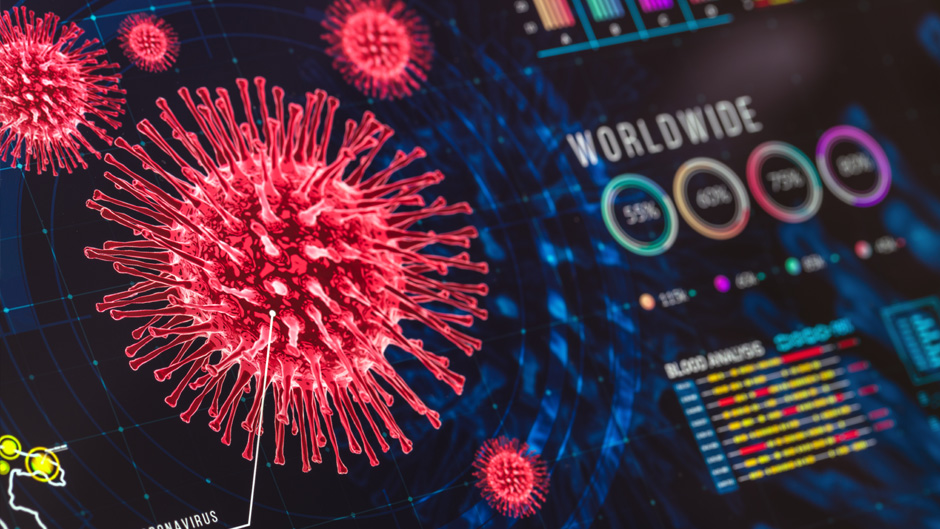Around the globe, mathematical models are being produced by scientists and researchers to help study, combat, and forecast COVID-19. At the University of Miami, mathematicians and researchers are producing impactful work by sharing their expertise in mathematical modeling to decipher complex problems for real-world issues.
“Mathematical modeling is a key resource to help scientists and researchers find the best solutions to tackle 21st-century problems,” said Leonidas Bachas, dean of the College of Arts and Sciences. “Accurate models can provide vital insight into the pandemic and future pandemics, providing significant data able to predict transmission and reduce mortality rates.
For more than 20 years, the College’s Department of Mathematics has used models for research purposes in and out of the classroom. Currently, Professor Shigui Ruan and Assistant Professor Xi Huo are applying modelling approaches to measure the transmission dynamics of COVID-19. They are optimistic that it will help understand and predict the spread of COVID-19 and future diseases.
“Math models can be used to simulate the progression of the pandemic of COVID-19 and assist scientists, government officials, and policy makers with strategies that can help reduce attack ratios in the future,” said Ruan. “Over the years, I have developed numerous mathematical models that address both scientific theory and disease-control policy issues.”
Using mathematical models, Huo and Ruan are carrying out simulations to study the impacts of case identifications and early interventions surrounding the outbreak of COVID-19 in South Florida specifically. The team’s modeling can be used to assist government officials and local municipalities prepare for future pandemics at a much larger scale.
Social distancing, isolation, and quarantine measures are major health interventions issued to contain infectious diseases. COVID-19 created challenges due to limited testing kits in the early stages of the pandemic, which hindered the detection of cases, caused late healthcare responses, and a depletion of medical supplies.
The mathematics team will also investigate how the magnitude of an outbreak can affect healthcare resources, as well as the efficiency of novel testing options and isolation strategies.
“COVID-19 has highlighted the importance and relevance of mathematics to the world in a way that perhaps nothing like it has done before. Indeed, bending the curve is arguably the catch phrase of the year,” said Robert Stephen Cantrell, director of the Institute of the Mathematical Sciences of the Americas (IMSA) and chair of the Department of Mathematics in the College of Arts and Sciences.
IMSA is dedicated to fostering new collaborations in mathematics across the hemisphere and was established with a $2 million grant from the New York-based Simons Foundation. Recently, the Institute hosted a global webinar to discuss mathematical modeling and COVID-19.
The virtual town hall meeting entitled, “Mathematical Modeling of Pandemics, COVID-19, and Social Consequences Across the Americas,” featured UM President Julio Frenk and ecologist Simon Levin, a member of the National Academy of Science and director of Princeton University’s Center for BioComplexity.

